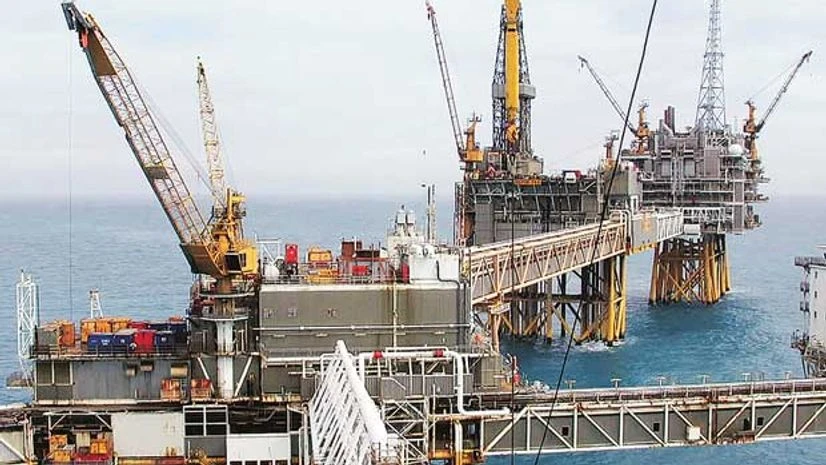About a third of the 69 small and marginal oil and gas fields that the government plans to auction to private firms are in Mumbai offshore and the biggest of these holds about 15 million tonnes of oil reserves.
Of the 69 idle oil and gas fields of state-owned ONGC and Oil India Ltd which are to be auctioned, 27 are in Mumbai Offshore while another 15 are in the prolific Krishna Godavari (KG) basin, official sources said.
As many as 10 discoveries in the Assam Shelf are also on offer.
More From This Section
In all, seven marginal discoveries of ONGC date back to less than five years, with 2012-13 Koravaka gas field in K-G basin being the youngest. An equal number of finds were made between 2005-06 and 2008-09.
Cumulatively the surrendered small and marginal fields hold about 50.8 million tonnes of oil and 53.45 billion cubic metres of gas, the biggest discovery is the D-18 in Mumbai Offshore that along holds 14.78 million tonnes of in-place oil reserves.
Among the gas discoveries, the largest is ONGC's B-9 find in the offshore Kutch basin that has an in-place reserve of 14.67 bcm.
Sources said while ONGC has surrendered 63 discoveries, OIL has given up six, all of which are in Assam Shelf.
The 69 fields will be grouped with those adjacent, to form on unit. So far, the clubbing has brought down the number of fields to be offered in the auction to 48, they said adding the final number of offer may be a little lower.
The auction will be done on a new revenue sharing model where bidders will be asked to quote the revenue they will share with the government at the low and high end of price and production band.
This would help the government capture wind-fall of steep rise in prices as well as jump in production.
The new revenue sharing regime will replace the controversial Production Sharing Contract (PSC) model where oil and gas blocks are awarded to those firms which show they will do the most work on a block.
The PSC regime allowed all the investments to be recovered from sale of oil and gas before profits are shared with the government. This model was criticised by Comptroller and Auditor General (CAG) which said it encouraged companies to keep raising cost so as to postpone higher share of profits to the government.
For the small and marginal fields, the government is offering pricing and marketing freedom as well as a unified licence that will give operators right to produce both conventional oil and gas as well as unconventional resources like shale oil and gas and coal-bed methane (CBM).
Operators will get a 20 year licence and they will be allowed to carry out exp-loration through the life of the licence. This is in contrast to the PSC regime where exploration is not allowed in an area where discovery is made.
Sources said, in all, ONGC has 110 small and marginal oil and gas discoveries in the blocks or areas it got from government on a nomination basis. Of these, the company has been allowed to retain 47 where some work has been done and rest have to be surrendered. OIL has surrendered all of its six small and marginal discoveries.
ONGC and OIL, they said, will be reimbursed the cost they had incurred on these 69 fields by the new operator.
Operators of onshore fields will have three years to begin production four years from the date of signing contract to start output from offshore fields. The timeline for starting production from the two deepsea fields is six years.
Companies winning the blocks will have to pay royalty at prevailing rates but there would be no oil cess.

)
